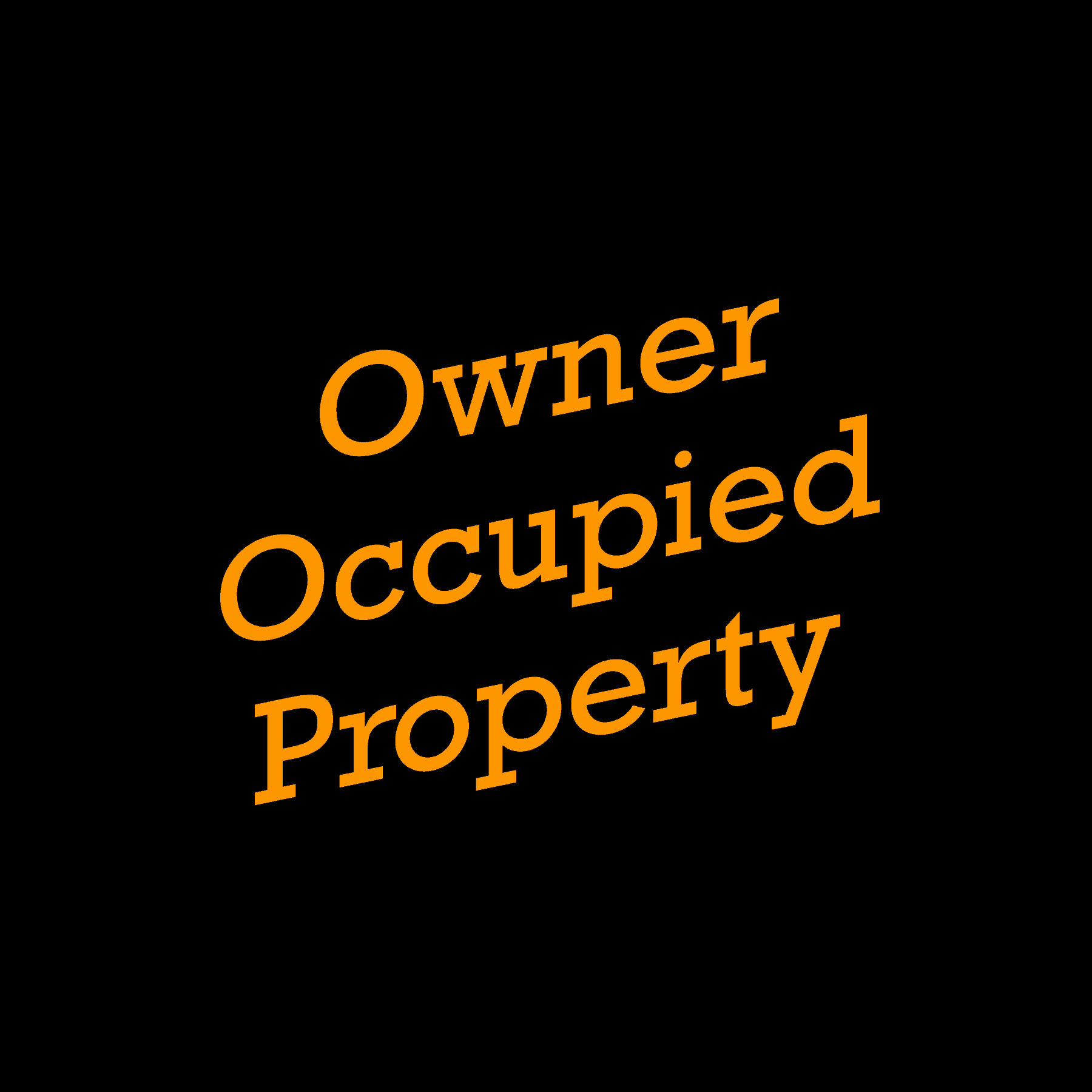How Do Investment Loans Work
The process of applying for an investment loan is much the same as applying for an owner-occupied loan, however, lenders will also consider other relevant factors that may affect your borrowing power. These include the potential rental income from the property you plan to purchase, and the likelihood of the property appreciating in value. There are certain other key differences in terms of the features of the loan itself. Because lenders view investment loans as riskier, the interest rates attached to them can be higher and the loan to value ratio can be lower, meaning your deposit will likely be larger. Depending on the lender and your circumstances, you may be able to use the equity in a property you already own to fund the purchase of an investment property, instead of paying a cash deposit. There can be risks to this approach, however, so getting some financial advice before you commit could be wise, particularly if you are a novice property investor.
Owner Occupied Multi Family Property
Any primary dwelling can be considered a residential owner-occupied investment property.
From an investment standpoint, however, an owner occupied residential property will always be multi familyin other words, 2 units and above.
The list of owner occupied multi family property could include duplexes, housing coop, or even multi unit apartment buildings.
The owner lives in one unit while renting out the others for income.
What Are The Requirements For An Owner Occupied Loan
When obtaining an owner-occupied home loan, you are required to live in the property for usually 12 months. This requirement is fundamental to the loan, and if not complied with, you could be dealing with fraudulent misconduct.
Occupying the property can also be defined as:
- Living at the property 70% of the year
- Working within 100km of the property
- Signing declarations stating you will live at the property for the allocated amount of time
The Australian Tax Office has the following criteria for main residence property:
- Living at the property with your family
- Your belongings are at the property
- You receive mail to the property
- You are registered on the electoral roll at the propertys address
- Utilities are connected to the property
Also Check: Best Online Retirement Investment Companies
How To Get A Home Loan For An Investment Property
For investor home loans, application process is similar withrental income taken in to account to assess borrowing capacity. Well need todemonstrate that you have a certain amount of money set aside to manage themortgage.
The amount youll likely receive in rental income can alsobe a consideration for the application of the loan, since you might be able tocover the cost of your mortgage repayments and other expenses with this income.That means the investment might not actually lower your debt-to-income ratio, which is one of the factors in the loan approval process.
Mortgage lenders also take into consideration the potential appreciation of your property over the course of the home loan. Both you and they may want to review information about vacancy rates for the area or property as well as trends in housing prices. These factors will come into play when you have your property valued.
Rates quoted are as of 12 Jan 2020 and subject to change by the lenders without any notice
Finance Circle Group is not a property agent or financialadvisers. This article is general and has nottaken into account your objectives, financial situation, or needs. Considerwhether any advice is right for you. You may need financial advice from aqualified adviser. Consider the product disclosure statement beforemaking any financial decision
Search
Owner Occupied Loan For Investment Property

Investment Property Value Calculator Financing Investment Property No Money Down Buying an investment property vs. buying your own home. No matter what youâve seen on TV, purchasing real estate as an investor is a lot. âThose looking to finance the purchase of real estate as an investment-as opposed to a. Lenders typically require more money down and a better credit score for a.Determining the value of property held for rental or investment purposes is different from determining what a property without an income component is worth. The challenge comes in choosing whether.
Some of these include your income, credit score, debt-to-income ratio, and if its going to be an owner-occupied investment property. If youre not planning on living in the property, a 20% down payment is usually the minimum. This would give the property a loan-to-value of 80%.
For non-owner occupied homes only, in which the property generates income from rent. investment property mortgages require a 1.00% loan origination fee. The origination fee may be waived for a 0.25% increase in the interest rate.
·An investment property line of credit is a short-term financing option for non-owner-occupied properties. Investors will typically qualify for a predetermined amount and then draw cash from that amount as they need it. Its revolving like a credit card where you only pay interest on the money you actually use.
Also Check: What Is Real Property Investment
Read Also: Starting A Real Estate Investment Group With Friends
Do You Want To Invest In Property Our Guide Explains The Mortgage Options Available Be Aware
Summary
- Buying a home to rent out is a bit different than buying a home to live in for two reasons. One, you dont live in the home and two, lenders view it differently from a financing standpoint.
- Since a rental property is not going to be your primary residence, theres another layer of risk that lenders must take to provide finance for it.
- Investment property mortgages are, generally, easy to obtain if you meet the requirements, but understanding the differences is crucial.
- This guide is designed to explain the types of investment property mortgages available, as well as important must-know considerations to make before buying a property.
Our guide covers:
What Is A Primary Property
A primary property is a home you’ll use as your primary residence. When you apply for a mortgage on a primary property or residence, youre confirming youll be living there.
Lenders may feel more confident lending to buyers who are using their home as a primary residence since they will be working directly with the people who are going to be living in, and caring for, the home.
Read Also: Miles Franklin Precious Metals Investments
Rental Properties As An Investment Asset
One of the main advantages of owning a rental property is the steady stream of revenue that it can generate. But investment properties are just that investments, and they can do more to generate wealth than simply provide a month-to-month income for the landlord.
Real estate, in any form, has always been one of the more consistent wealth builders for savvy investors, and rental properties are no different. It’s true that the real estate market fluctuates, ebbing and flowing with the economic fortunes of the country. But over the long haul, real estate almost always appreciates in value, making ownership of any property a truly valuable asset, including or perhaps most especially a rental.
Recent research into the risk vs. return of the most popular investment products has shown that rental real estate consistently out performs both stocks and bonds when it comes to return on investment.
A report was generated using historical data going back over 145 years, comparing many different types of investment options. In the report’s final analysis, rental properties proved to deliver the highest return and the lowest risk compared to other popular investment products.
When it comes to investment stability, trusting in something that has been so historically dependable as owning a rental property simply makes good business sense.
Intro To Investment Property Mortgages
When you buy an investment property, you need an investment property mortgage. The first thing to know is what other names these mortgages go by, so you know them when you hear them.
A lot of consumers and real estate agents will call this kind of loan a rental property mortgage.
Lenders, on the other hand, will call this a non-owner occupied mortgage.
The reason for this is that lenders categorize loans by the occupancy, and there are three kinds of home loans:
Read Also: Should I Invest In Shopify
Choosing The Right Home Loan For Your Goals
It’s very important not to misrepresent your intentions for a property when applying for a home loan. Because of the differences in rates, it might be tempting to try to obtain an owner-occupier mortgage no matter what, but loan agents are trained to evaluate whether their borrowers are committing whats called occupancy fraud.
The differences in rates come down to the amount of risk that tends to accompany each type of home loan. With investment properties, there tends to be a greater chance of default, and therefore more exposure for the lender, among other factors.
There are better ways to ensure you’re obtaining the best possible rates for your mortgage if you’re purchasing an investment property. No matter what type of loan you require, the same tried-and-true tips apply: pay down your existing debts, improve your credit score, and show you can pay off a mortgage.
If youre ready to move into your investment property, or turn your home into an investment, speak with one of our lending specialists today to talk about refinancing.
What Are The Occupancy Types In Mortgage
There are three types of occupancy:
- Principal Residence: The subject property will be a Primary Residence inhabited by the borrower.
- Second Home: The subject property will be occupied by the borrower for some portion of the year.
- Investment: An investment property is owned but not occupied by the borrower.
Don’t Miss: Village Capital And Investment Mortgage
The Bottom Line: Is An Owner
An owner-occupied property can be a great option for both real estate investors and home buyers searching for their primary residence. The attractive financing opportunities make this type of homeownership worth pursuing.
Want to dive deeper into other types of real estate investments? Take advantage of the free resources available through the Rocket Mortgage® Learning Center.
Get approved to refinance.
Investmentloan Vs Home Loan

As the names imply, the difference between owner-occupiedresidences and investment properties comes down to what you intend to do withthem. When youre buying a home or apartment you intend to live in, its calledan owner-occupied property. If you plan to rent it to tenants, its consideredan investment.
Some people may choose to live in a home for a while andthen rent it out after moving somewhere else, such as when their financespermit a transition or their careers compel them to relocate. Others maypurchase a building and lease it to tenants initially, planning to move inthemselves at a later date. However, if you follow this path and want to refinanceyour mortgage as an owner-occupier home loan, you may need to live there aset period of time before you can make the transition.
What if you purchase a property with more than one flat or apartment? If it has four or fewer units, some lenders may consider owner-occupier as long as you live in one of them.
Read Also: Best Website For Investing News
What Is A Secondary Property
A secondary property, also known as a second or vacation home, is a term used for a home that you only occupy part-time over the course of the year. A common type of secondary property might be a vacation home.
Lenders may have stricter requirements for mortgages on a secondary residence. This property type is a riskier investment because it will be vacant for part of the year.
It’s important to disclose if a home will be your primary or secondary residence on a mortgage application.
Investment Property Mortgages: Everything You Need To Know
Buying investment property can mean many things. Sometimes people even use this phrase to describe buying a home they live in because, after all, that property is a big investment for them.
But investment property most commonly means buying a home that you dont live in, but instead rent out. Lets take a look at the key things you need to know about buying and financing investment property.
Don’t Miss: Buying Investment Property With Less Than 20 Down
What Is The Average Interest Rate For Investment Property
Investment property mortgage rates can range from 50 to 87.5 basis points higher than rates on a primary home. As an example, if mortgage ratesfor a 30-year, fixed-rate mortgage on an owner-occupied home are averaging about 3.25%, you might expect a 30-year investment property loanto have a 3.75% to 4.125% interest rate.
Are Duplexes Worth The Investment
Before deciding which house is better, a duplex or normal detached home, think about this. Why are you buying a duplex anyway?
Unless you live elsewhere, the pressures of being a landlord, and living next to your tenants may be more than you anticipated. Collecting rent, fixing every little problem that goes wrong, coping with tenant rights. How will you deal with noisy or disruptive neighbours?
Unlike a semi-detached, side-by-side or up-down home with separate owners and lots, duplexes have a single owner on a shared lot. That means your tenants will have their own kitchen, bathroom, and living space. But you could be on the financial hook for costly upgrades if a duplex isnt up to date with the fire code. Making amendments to agreements of purchase and sale if you buy the wrong home.
Follow our YouTube channel for legal updates on investing in Ontario real estate.
Also Check: How To Invest Your 401k In Gold
What Are The Benefits Of An Owner Occupied Home Loan
The biggest benefit of an owner-occupied home loan is the decreased risk, compared to investment properties and mortgages for second home loans.Owner-occupied home loans allow the borrower to live in the home for 12 months, which is usually of benefit to the borrower.
Owner-occupied home loans also carry lower interest rates, fewer fees, and different penalties than obtaining a traditional mortgage for a second home loan. If after 12 months of occupation the owner decides to sell the property, they can have a lower capital gains tax compared to if it were financed as an investment property.
The owner may also meet requirements to qualify for a homestead exemption on property tax, making it advantageous to choose this financing option. This is even better when the mortgage interest and property tax is deductible as well.
Fewer fees
Tax Treatment For Investment Property Mortgages
If you have a rental property, this will show up in a section called Schedule E of your tax returns, which shows all the income and expenses of your rental property.
Expenses include mortgage interest, as well as many other things like property taxes, insurance, HOA dues , maintenance fees, rental management fees, and depreciation.
If the net number on Schedule E is positive, that number counts as income, and youre taxed on it.
If the net number is negative, that number counts as a loss, and reduces your taxable income. But theres a catch here because higher earners dont always get the benefit of reduced taxable income each year. If you make too much, a rental property loss on Schedule E would instead accrue yearly and count as an offset to capital gains when you sell the rental property.
Talk to your tax advisor for advice on which scenario would fit your profile.
Also Check: How To Invest 1 Dollar
Second Homes Vs Investment Properties: Mortgage Terms And Tax Rules
See Mortgage Rate Quotes for Your Home
A second home is a one-unit property that you intend to live in for at least part of the year or visit on a regular basis. Investment properties are typically purchased for generating rental income and are occupied by tenants for the majority of the year. There are significant differences in the costs and loan qualifying requirements between a second home and an investment property which you should understand before buying another house.
Comparing Loan Rates For Rental And Primary Residences

While buying an investment property is similar to the process of an owner-occupied or second home mortgage, there are differences.
Unlike traditional home purchases, investment property loans tend to have higher mortgage rates, often ranging between .25 and .75 percent. Where the borrower falls in that range depends on the down payment, with those paying more upfront receiving less of an increase.
The minimum down payment for an investment property loan is 15 to 20 percent, but the lowest rates are often not available until you raise it to at least 30 percent.
- Handsome profits are delivered fast and in lump sums.
- Potential for quick and large returns.
If you watch HGTV, you know the drill.
First, buy a slightly distressed property in an up-and-coming neighborhood for less than market value or less than its near-future value. Next, refurbish this fixer-upper into a model home. The moment the facelift is done, find a buyer willing to pay more for the property than you invested.
Rinse and repeat.
House Flipping Cons
The biggest mistake made by many newbie house flippers is underestimating the cost of purchasing and fixing up the property. As a house flipper, youre betting you can sell the renovated house at a significant markup before ever-escalating costs destroy your profit margin.
This isnt a game for naïve or impatient people.
Also Check: How To Invest Your Roth Ira Money